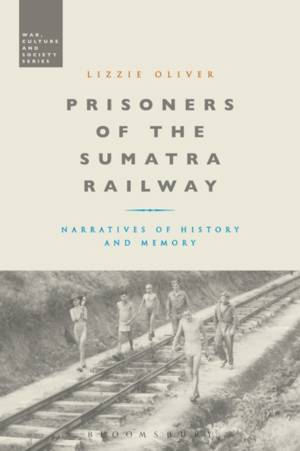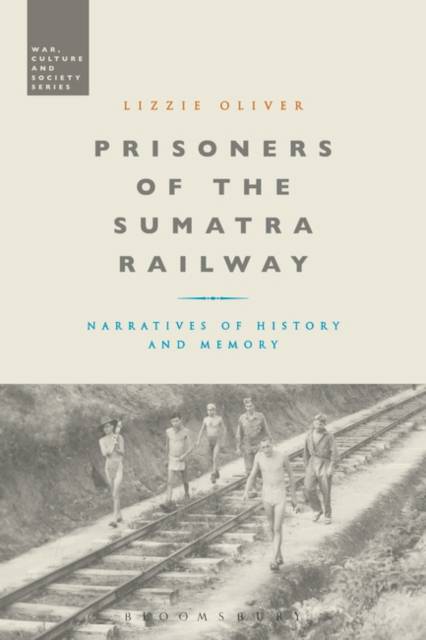
- Afhalen na 1 uur in een winkel met voorraad
- Gratis thuislevering in België vanaf € 30
- Ruim aanbod met 7 miljoen producten
- Afhalen na 1 uur in een winkel met voorraad
- Gratis thuislevering in België vanaf € 30
- Ruim aanbod met 7 miljoen producten
Zoeken
€ 271,45
+ 542 punten
Uitvoering
Omschrijving
Prisoners of the Sumatra Railway is the first book to detail the experiences of British former prisoners of war (POWs) who were forced to construct a railway across Sumatra during the Japanese occupation. It is also the first study to be undertaken of the life-writing of POWs held captive by the Japanese during the Second World War, and the transgenerational responses in Britain to this period of captivity.
This book brings to light previously unpublished materials, including:
- Exceptionally rare and detailed diaries, notebooks and letters from the railway
- Memoirs from Sumatra, including detailed recollections and post-war statements written by key personnel on the railway, such as Medical Officers and interpreters
- Remarkable original artwork created by POWs on Sumatra
- Contemporaneous photographs taken inside the camps
Employing theories of life-writing, memory and war representation, including transgenerational transmission, Lizzie Oliver focuses particularly on what these documents can tell us about how former POWs tried to share, preserve and make sense of their experiences. It is a wholly original study that is of great value to Second World War scholars and anyone interested in 20th-century Southeast Asian history or war and memory.
This book brings to light previously unpublished materials, including:
- Exceptionally rare and detailed diaries, notebooks and letters from the railway
- Memoirs from Sumatra, including detailed recollections and post-war statements written by key personnel on the railway, such as Medical Officers and interpreters
- Remarkable original artwork created by POWs on Sumatra
- Contemporaneous photographs taken inside the camps
Employing theories of life-writing, memory and war representation, including transgenerational transmission, Lizzie Oliver focuses particularly on what these documents can tell us about how former POWs tried to share, preserve and make sense of their experiences. It is a wholly original study that is of great value to Second World War scholars and anyone interested in 20th-century Southeast Asian history or war and memory.
Specificaties
Betrokkenen
- Auteur(s):
- Uitgeverij:
Inhoud
- Aantal bladzijden:
- 192
- Taal:
- Engels
- Reeks:
Eigenschappen
- Productcode (EAN):
- 9781350024120
- Verschijningsdatum:
- 14/12/2017
- Uitvoering:
- Hardcover
- Formaat:
- Genaaid
- Afmetingen:
- 156 mm x 234 mm
- Gewicht:
- 449 g

Alleen bij Standaard Boekhandel
+ 542 punten op je klantenkaart van Standaard Boekhandel
Beoordelingen
We publiceren alleen reviews die voldoen aan de voorwaarden voor reviews. Bekijk onze voorwaarden voor reviews.








